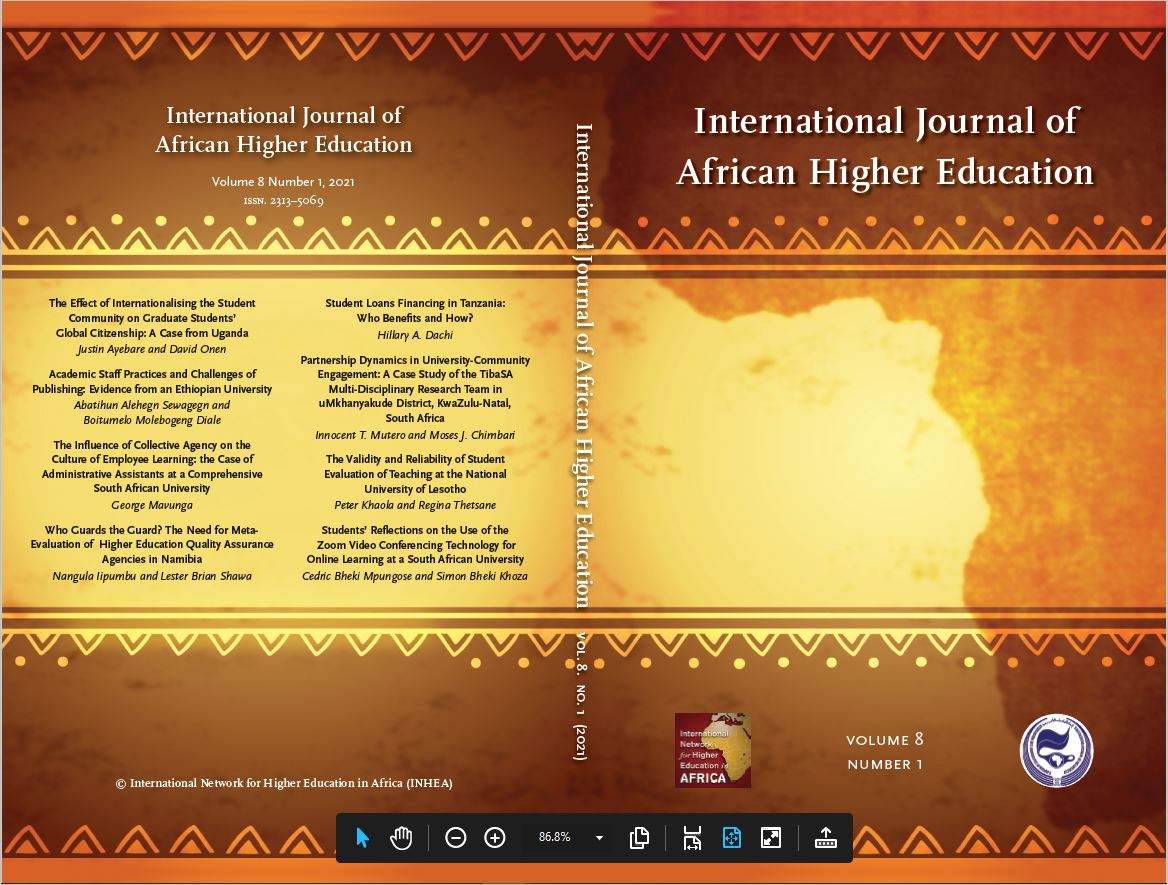Partnership Dynamics in University-Community Engagement:
A Case Study of the TibaSA Multi-Disciplinary Research Team in uMkhanyakude District, KwaZulu-Natal, South Africa
DOI:
https://doi.org/10.6017/ijahe.v8i1.13373Abstract
Cooperation and reciprocity between university actors and community research assistants through university-community engagement has the potential to lead to knowledge creation and improved research uptake.
However, there is a paucity of research on the relational dynamics and operating processes in successful partnerships between multi-disciplinary university scientists and community research assistants. This study investigated the case of the Tackling Infections to Benefit Africa (Tiba) research team based at the University of KwaZulu-Natal to identify the attributes associated with constructing and sustaining transformative university-community engagement through multi-disciplinary research teams. Data was collected by means of participant observation, ethnographic conversation interviews, and in-depth interviews with key participants including co- --mmunity research assistants and university-based researchers. The results show that organisational structure and qualities, academic principles and social qualities underpin the success of multi-disciplinary research teams. Based on the findings, we assert that dialogic interaction, respect, ‘demystification of science’ and knowledge plurality facilitate relationships between researchers and community research assistants that can aid in framing sustainable university-community engagement as a way to work with the community rather than ways to work for it.
Key words: university-community engagement, social attributes, partnership dynamics, multi-disciplinary research, community research assistants
Downloads
Published
How to Cite
Issue
Section
License
Copyright (c) 2021 Innocent T. Mutero, Moses John Chimbari

This work is licensed under a Creative Commons Attribution-NonCommercial-NoDerivatives 4.0 International License.

